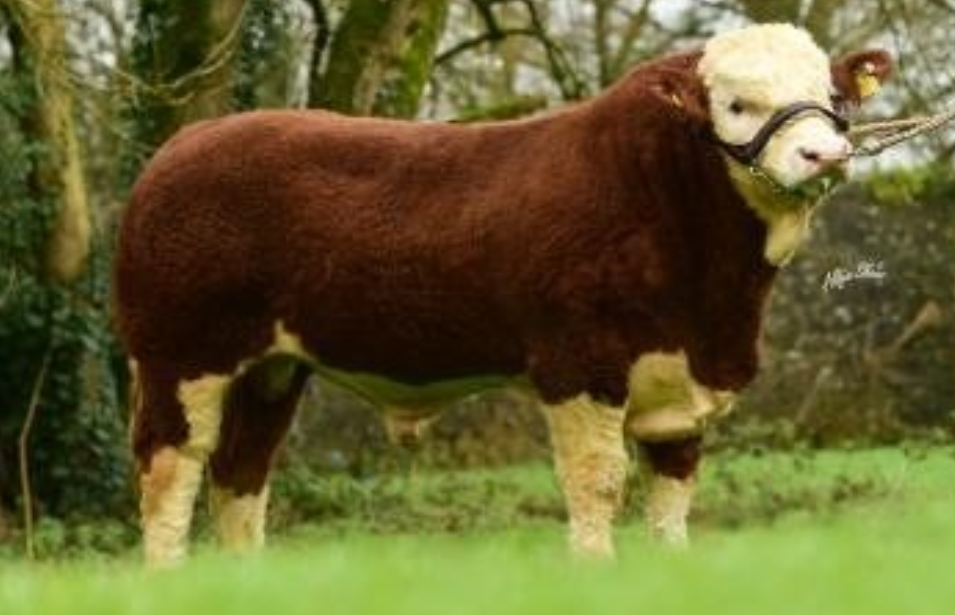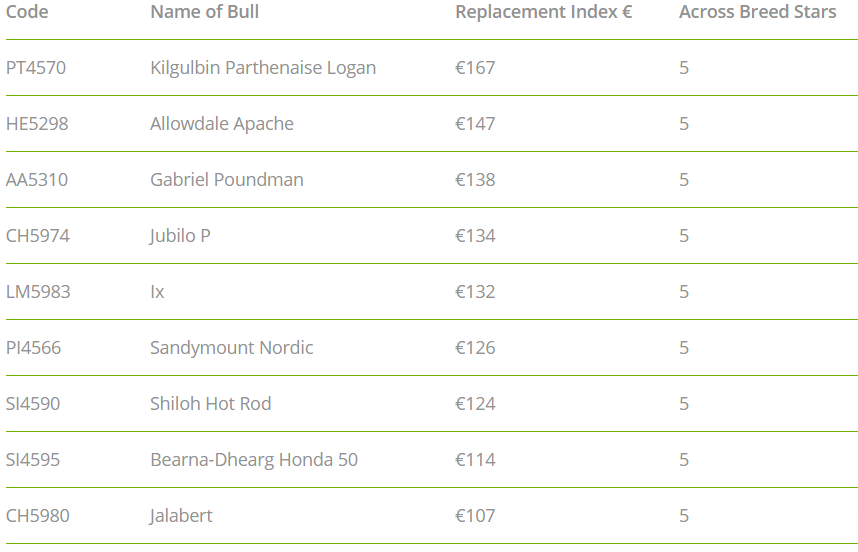The Gene Ireland Programme was established by the Irish Cattle Breeding Federation (ICBF) in conjunction with industry partners.
The breeding programme was launched to improve breeding efficiency at farm level through the boosting of calving intervals and the number of calves produced per cow per year.
It aims to improve genetic information in Irish beef production by recording high-quality data and by testing more progeny from suitable beef bulls.
Over recent days, the ICBF has announced the availability of semen from nine Gene Ireland bulls at a cost of €5/straw.
Again, the bulls have been selected on their potential to deliver on fertility and milk production. They have also been selected on their growth rate and conformation traits.
An array of bulls from different breeds are available, including: Limousin; Aberdeen Angus; Simmental; Charolais; Parthenaise; Piedmontese; and Hereford.
All of the bulls available are 5-star on the Replacement Index. The highest ranking bull, Kilgulbin Parthenaise Logan (PT4570), has a value of €167 on the Replacement Index, while the average value of the nine bulls is €132.
Programme success
According to the ICBF, early results are very positive for the bulls which had semen dispatched since 2014. These were the first bulls selected by the Gene Ireland breed committees and are now hitting the >70% reliability mark for Replacement Index.
On average, the six bulls detailed in the table (below) have sired 263 daughters which have now calved themselves. They are proving to have produced profitable females retained by farmers for breeding and – in many cases – the calves on-farm performance has led to the sires indexes increasing.
These sires have, at this early stage, a lot of key data collected on their progeny such as calving records, weaning weights and even feed intake in Tully.
These bulls are good examples of how a young bull can reach a high level of reliability quickly via a structured progeny testing programme.

Details on some bulls tested via Gene Ireland and are now > 70% reliability on Replacement Index. Source: ICBF
Case study: Wilson Kells, Arva, Co. Cavan
The following case study first appeared on the ICBF website.
Wilson Kells runs a herd of 60 commercial suckler cows alongside a store lamb fattening system near Arva in Co. Cavan.
He has been a user of Gene Ireland straws for the last 10 years and currently over half the animals in the herd are sired by Gene Ireland bulls.
He is also an active participant in the BDGP [Beef Data and Genomics Programme], GLAS [Green, Low-Carbon, Agri-Environment Scheme], BEEP-S [Beef Environmental Efficiency Programme – Suckler] and BEAM [Beef Exceptional Aid Measure] schemes. The herd is comprised mainly of Charolais, Limousin and Simmental cows with a small amount of Angus and Salers starting to be used with good results.
All progeny are brought to beef with the males as bulls under 16 months and females not selected for breeding being finished at 24-months. All the replacement heifers are sired by AI bulls with the ICBF indexes being used to identify sires strong for milk, docility whilst also maintaining calving ease.
One of the standout cows in Wilsons herd is IE121016651194 (pictured below). Sired by the Gene Ireland Charolais sire Ballym Henri (YBH) and born in March 2015, this cow first calved at 25 months and has produced an incredible six calves (two sets of twins) in four years.
She currently has a Replacement Index of €177 with a calving interval figure of 360 days and her first daughter has been retained in the herd for breeding.
This cow is a great example of what can be achieved in the suckler beef industry through a combination of genetics and top-class management.





